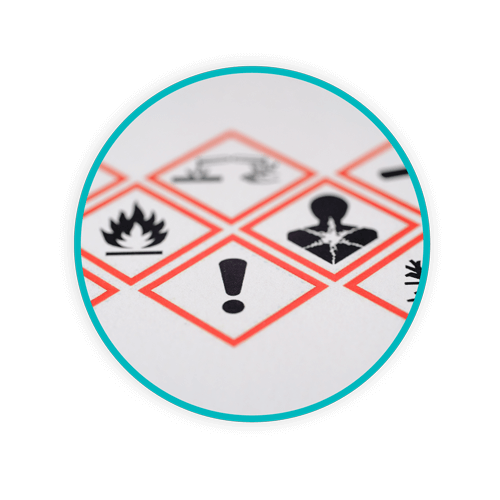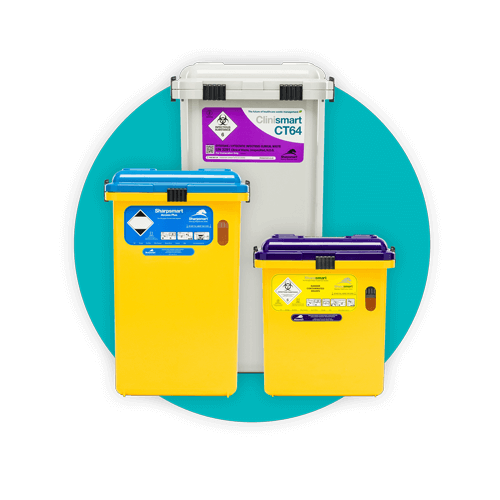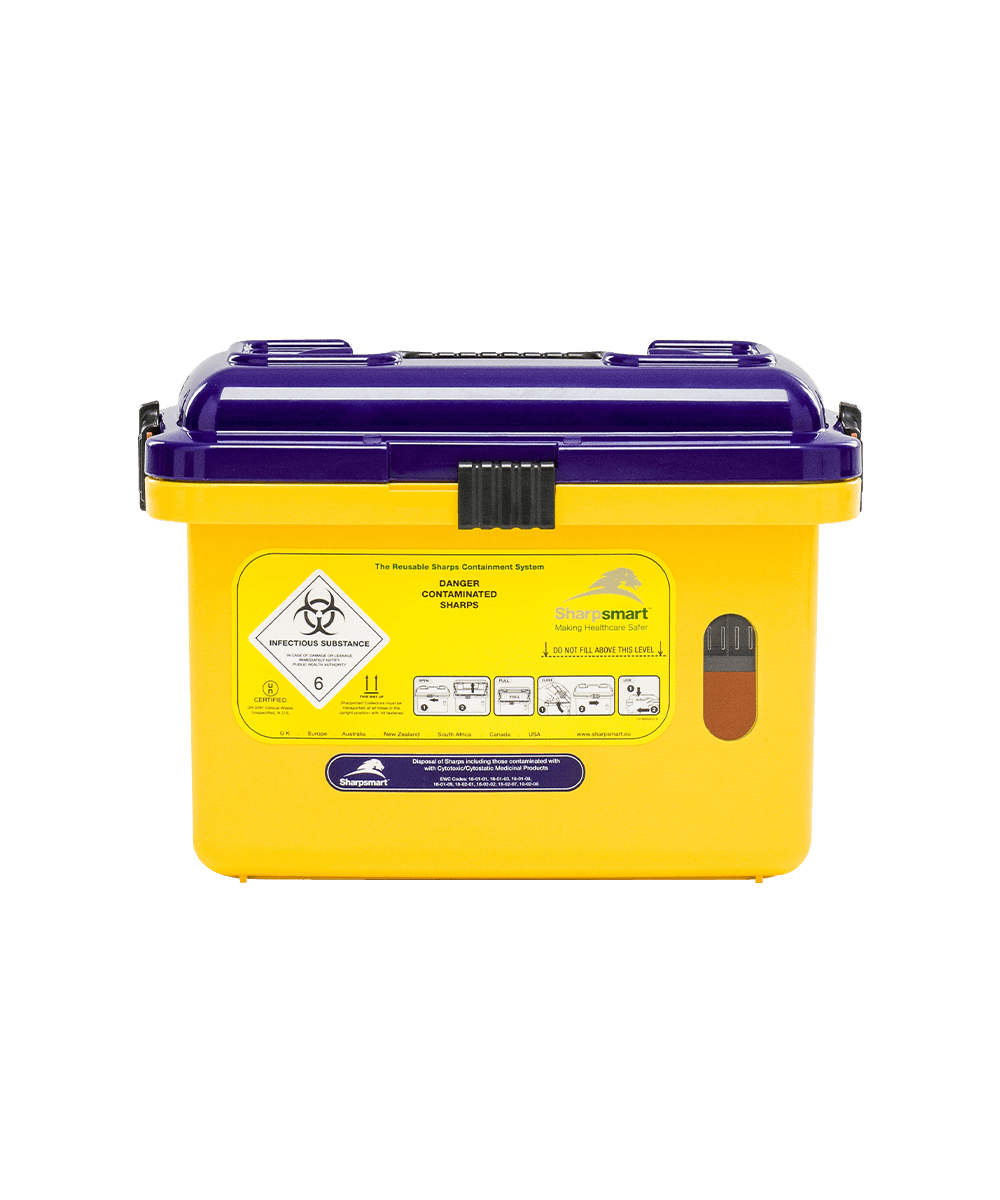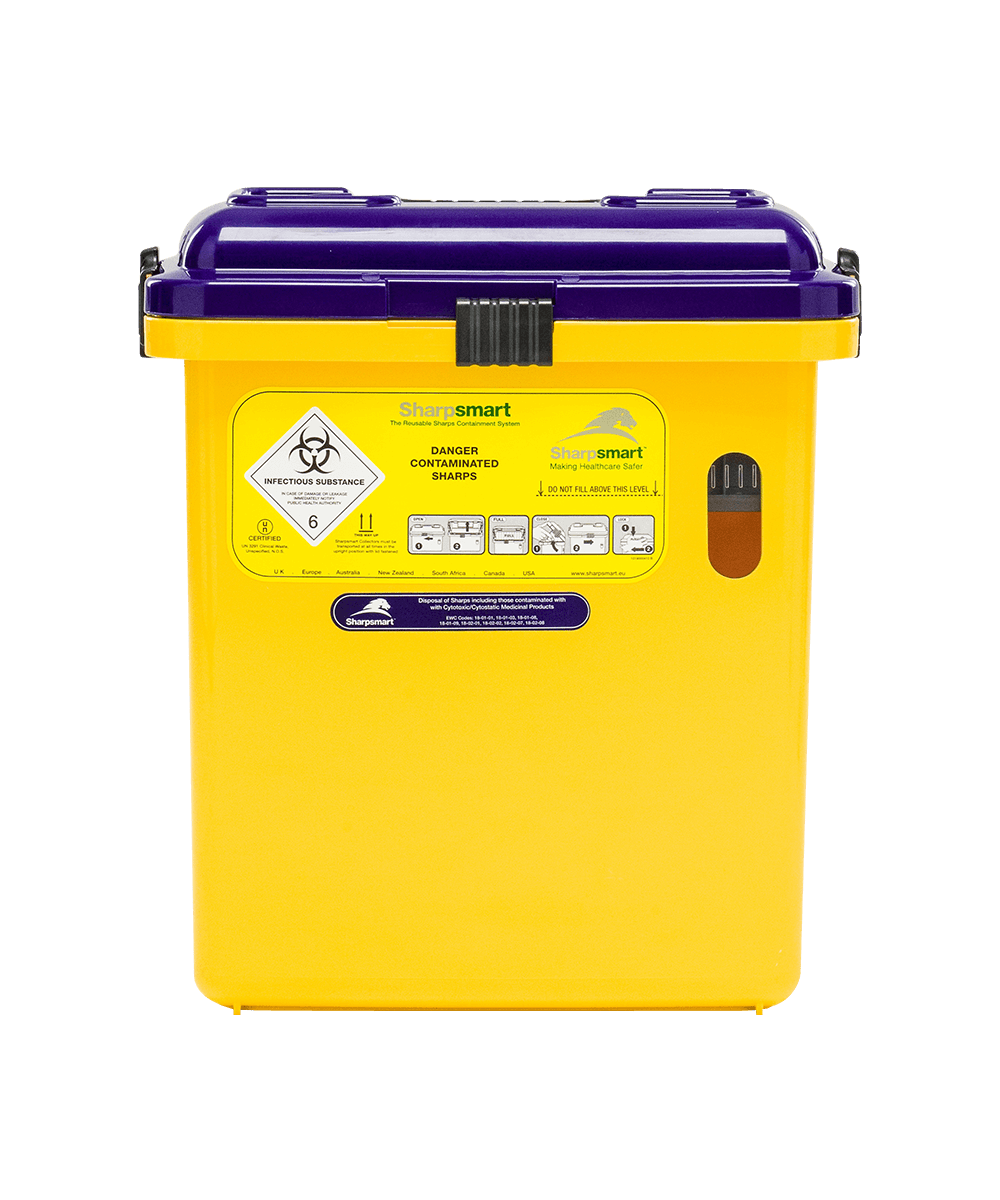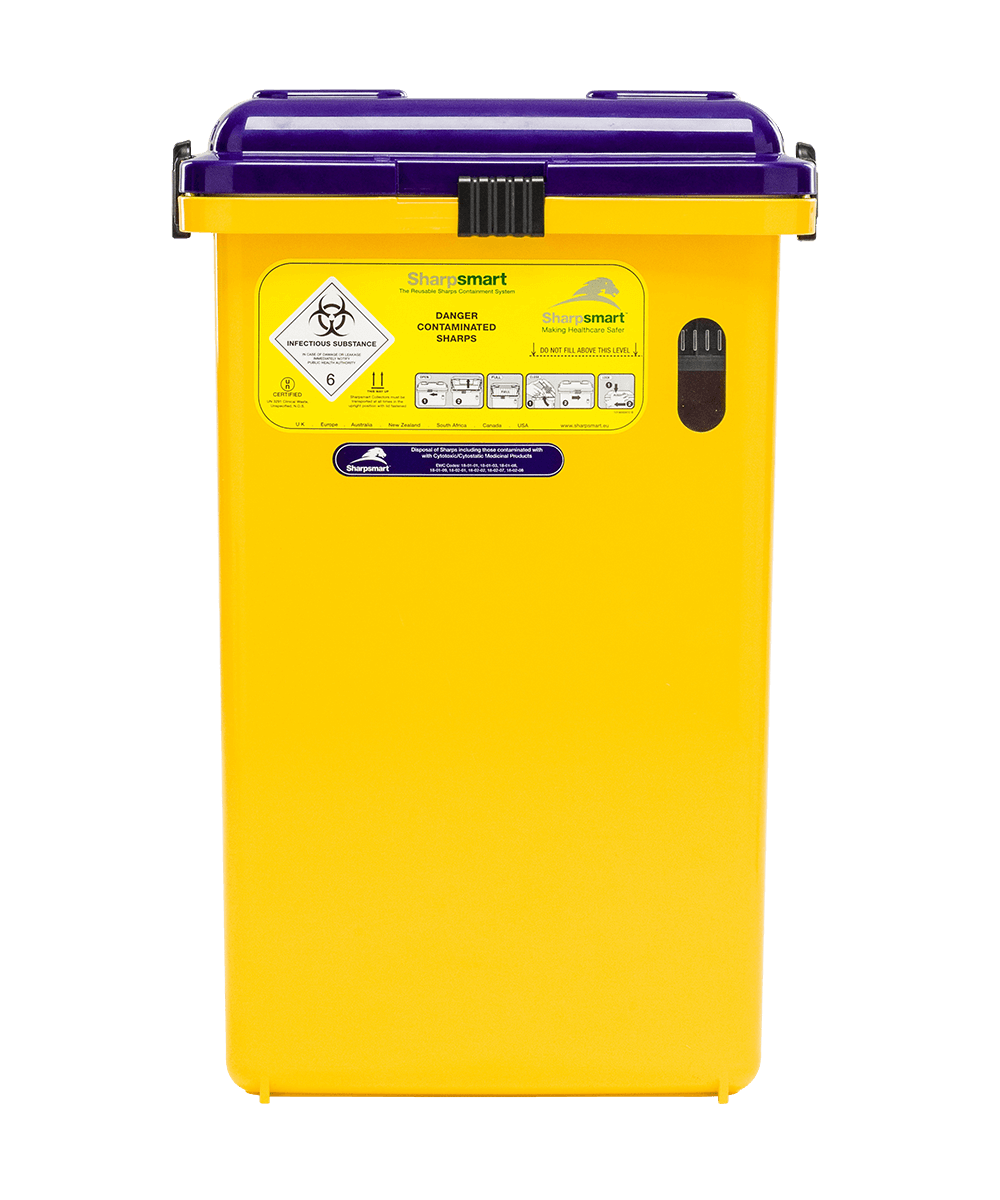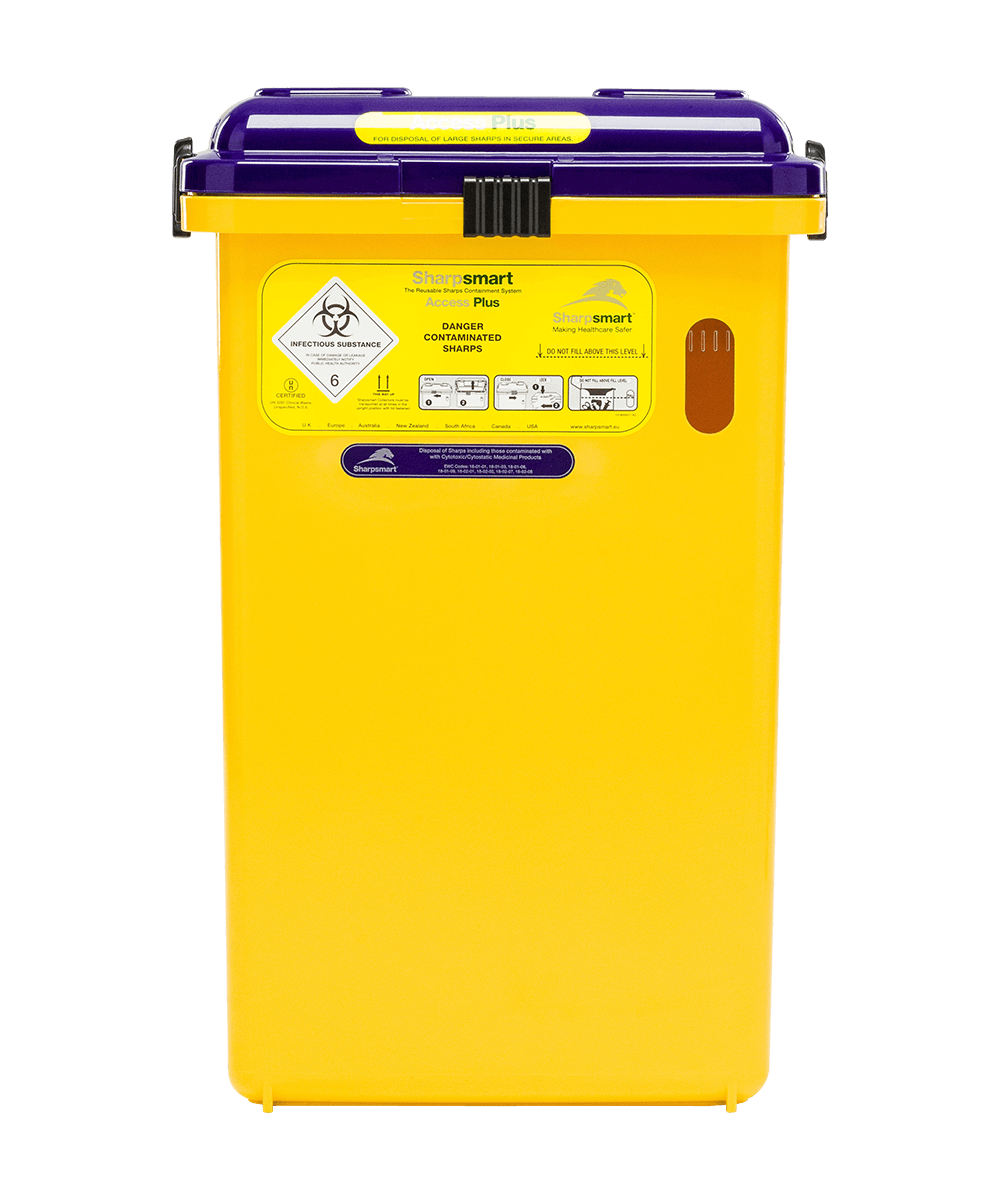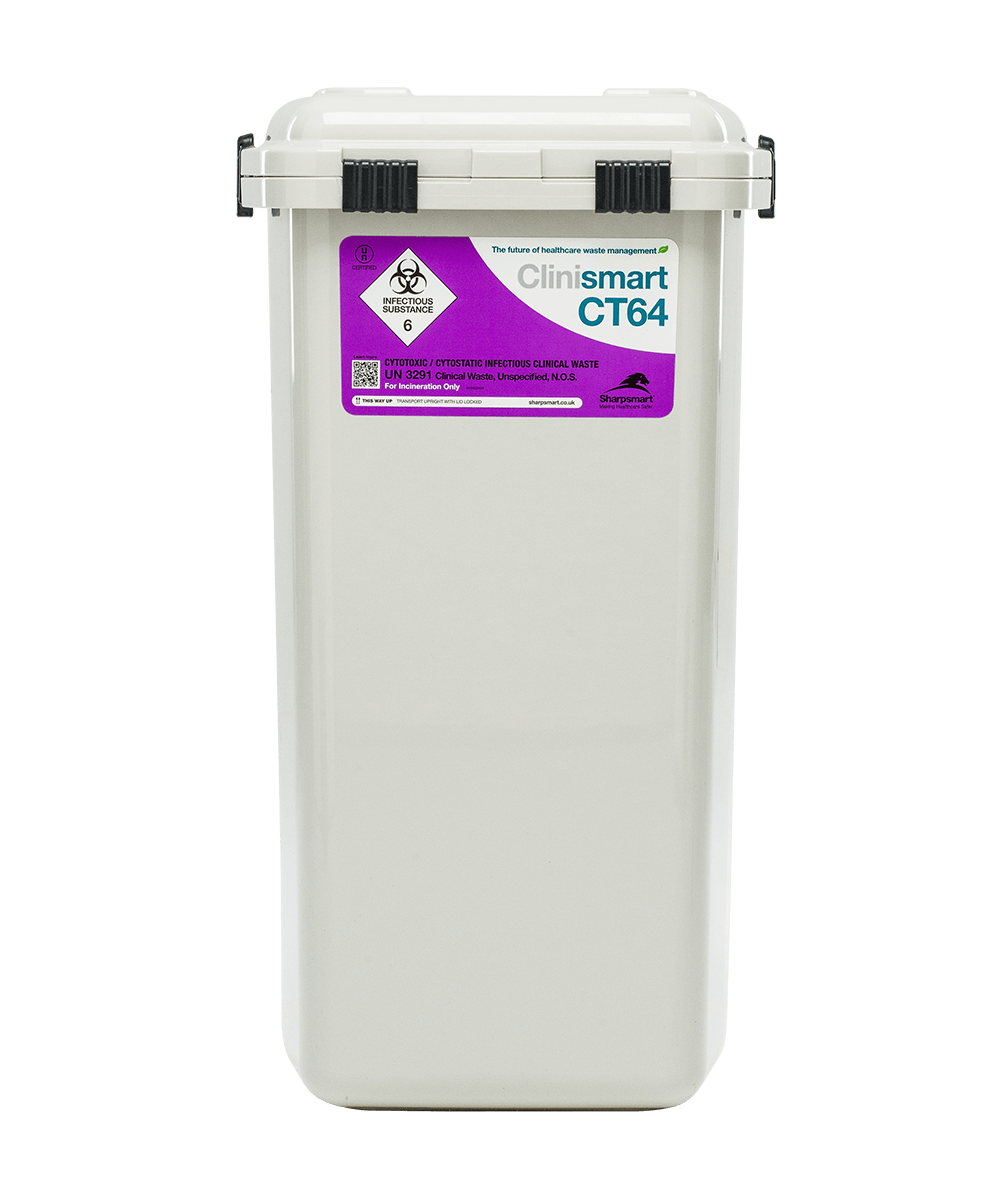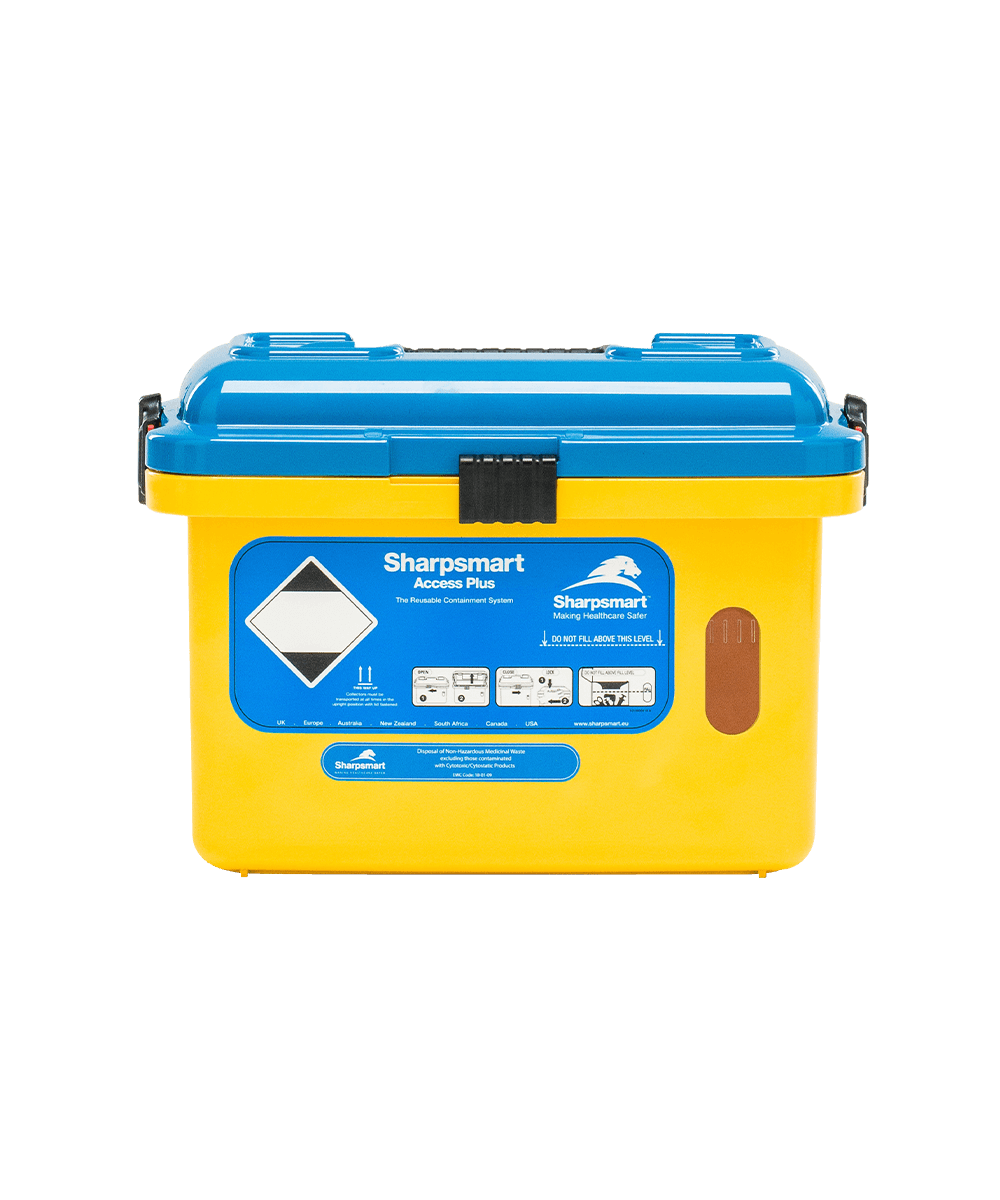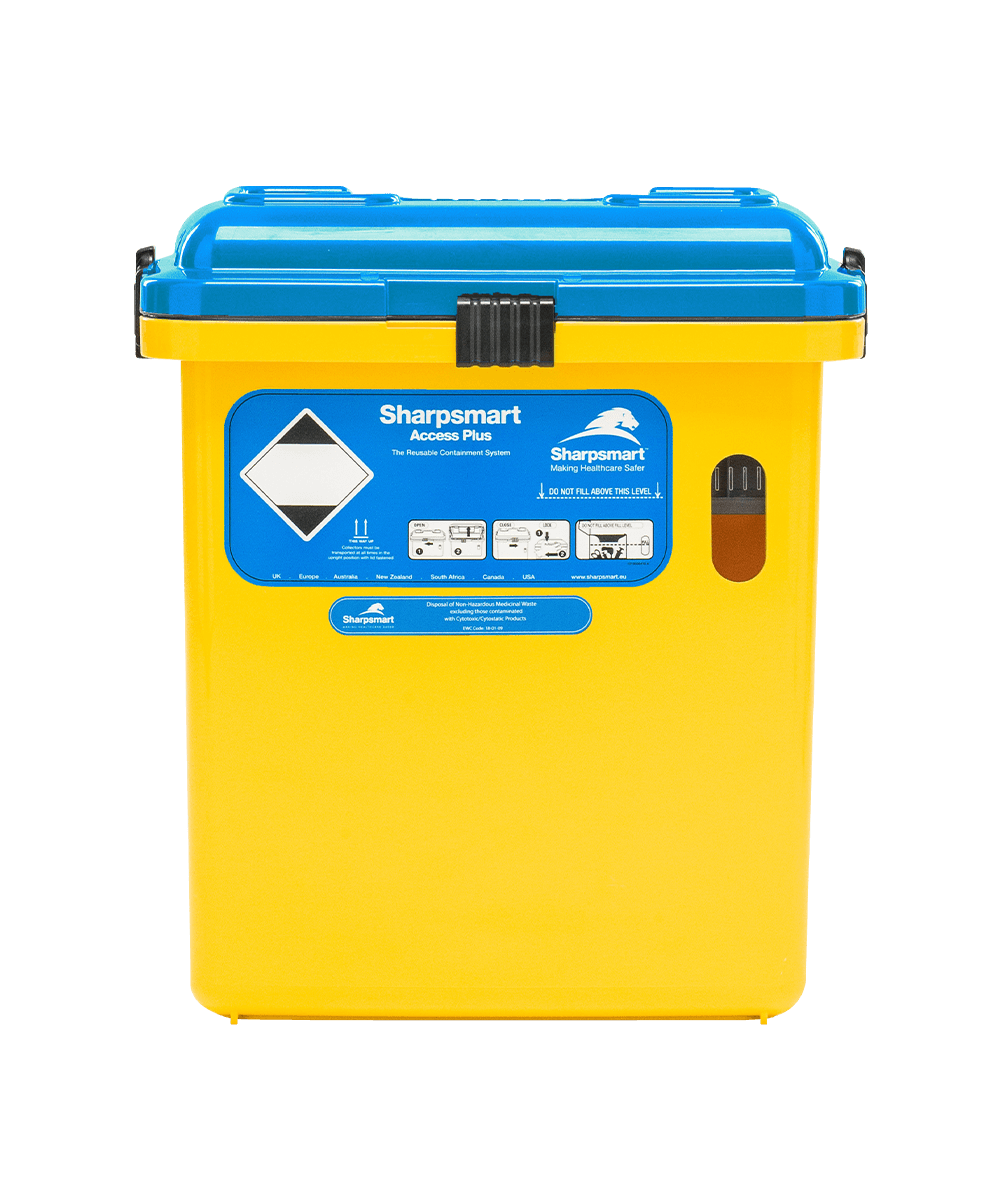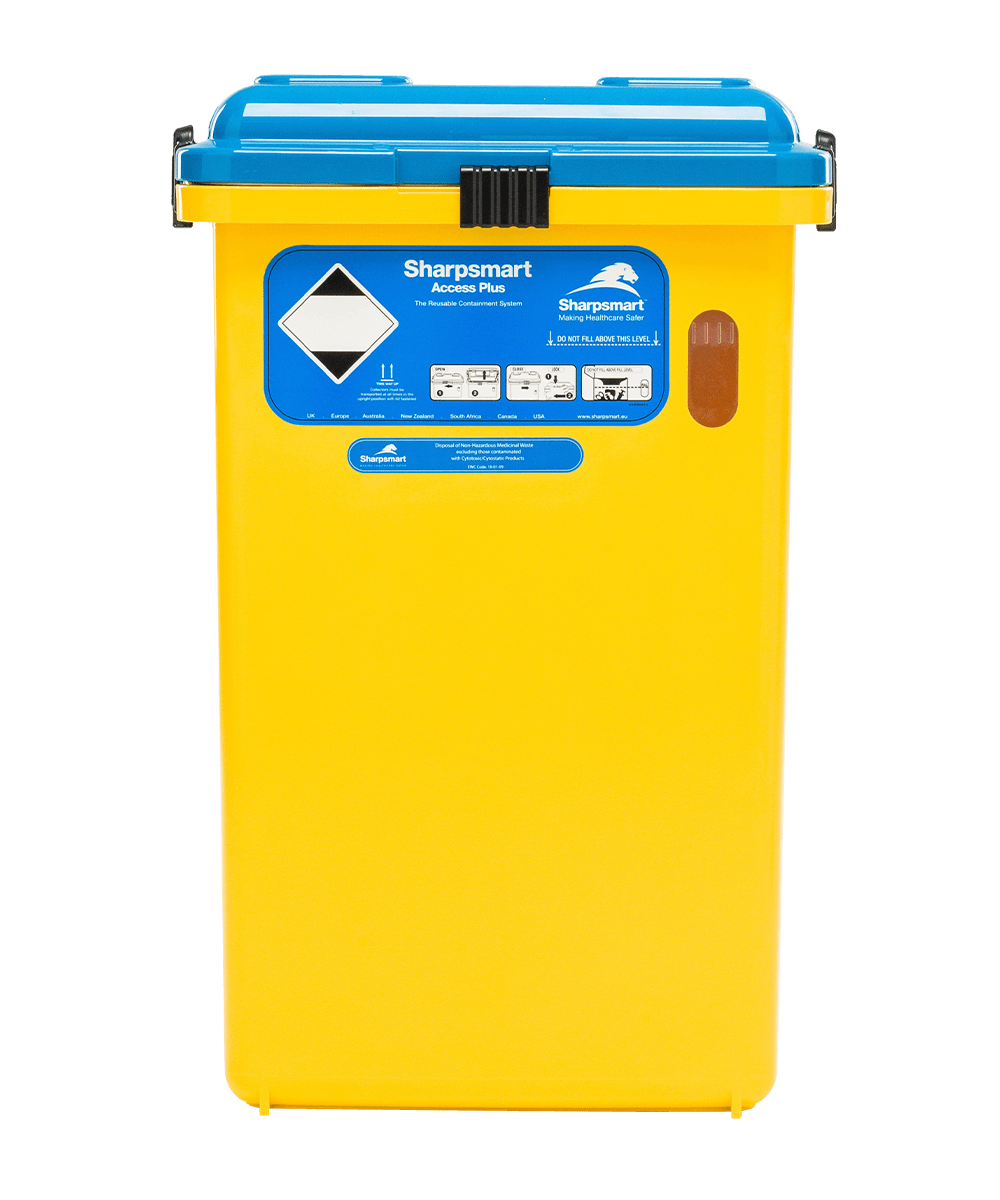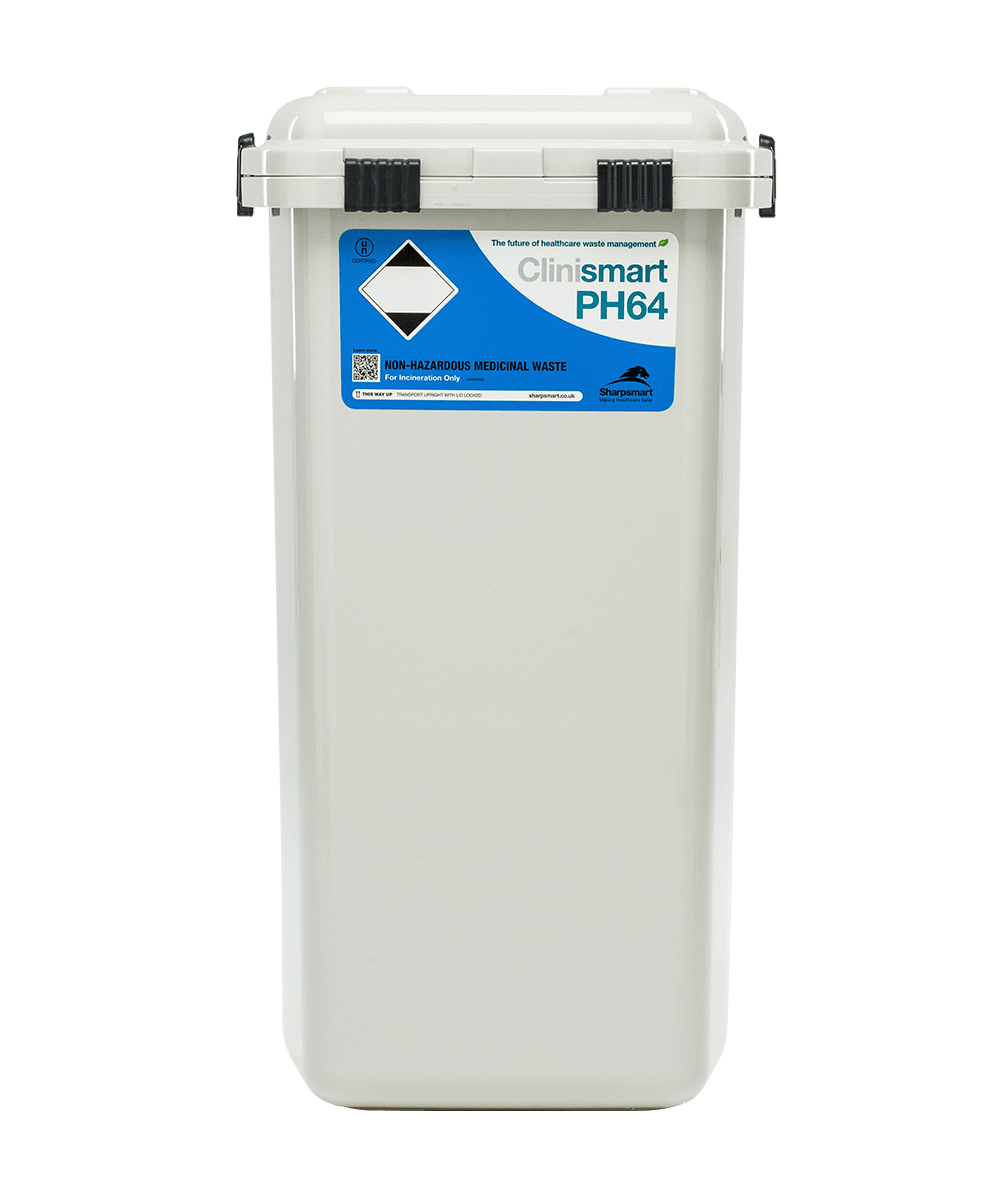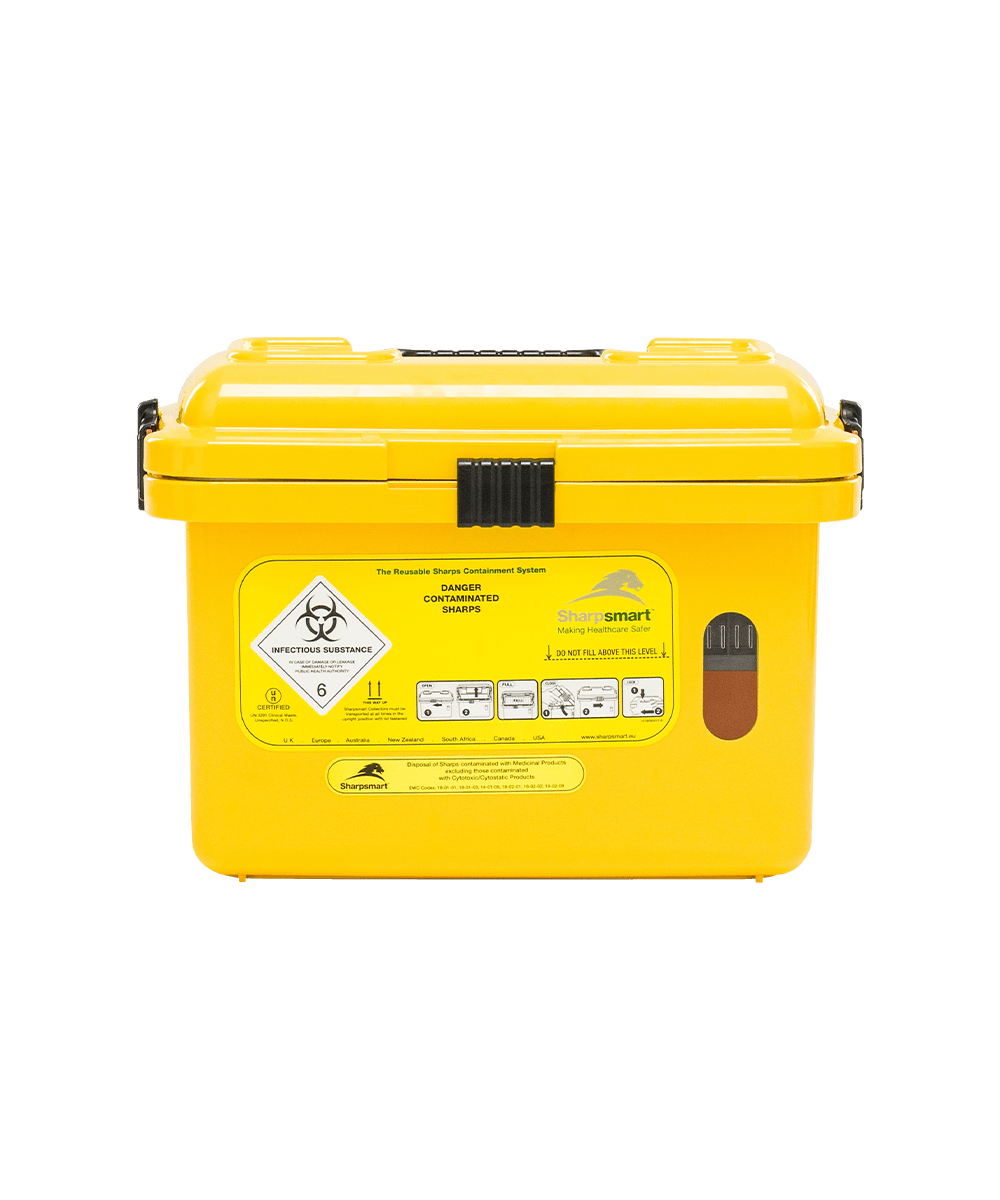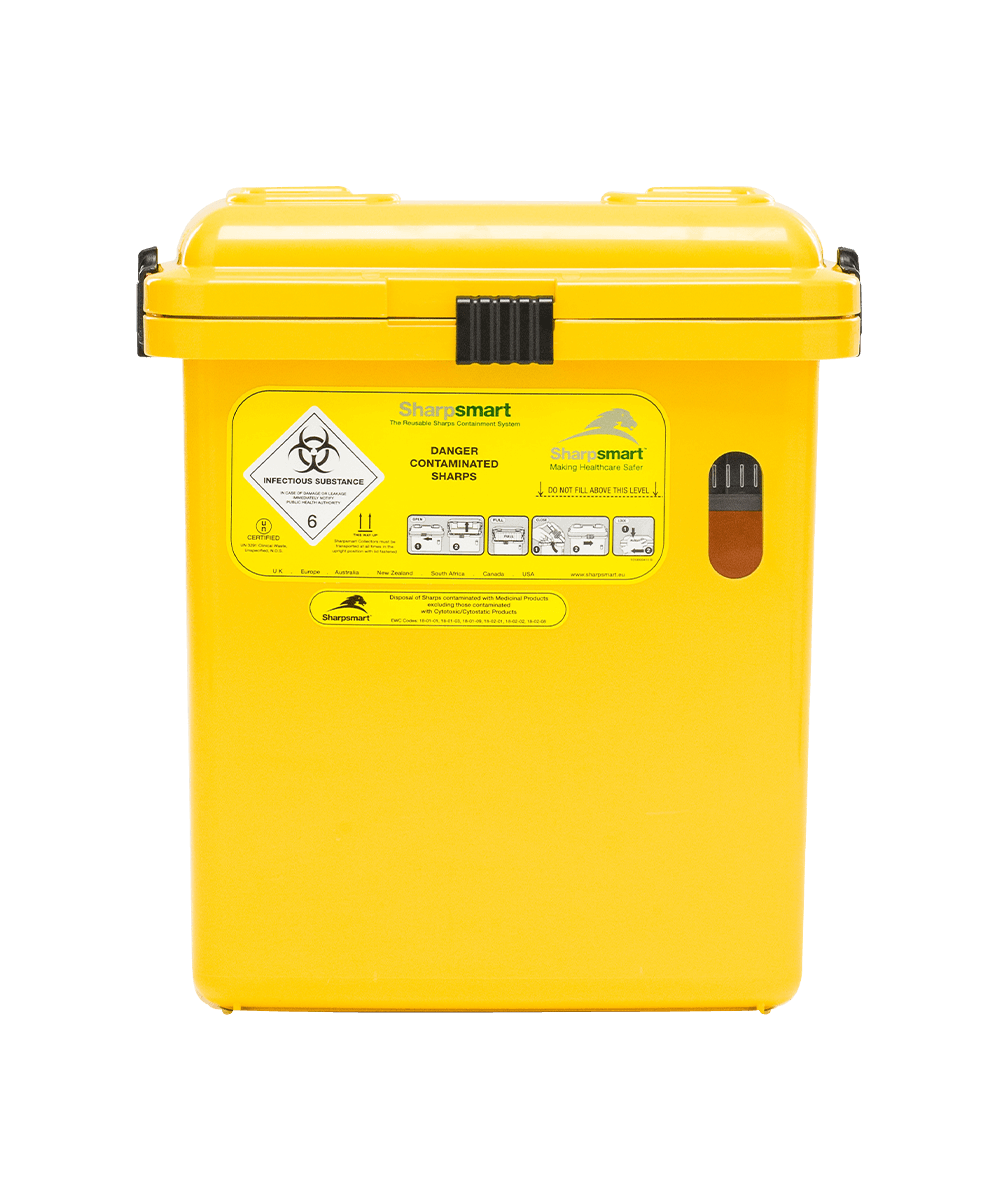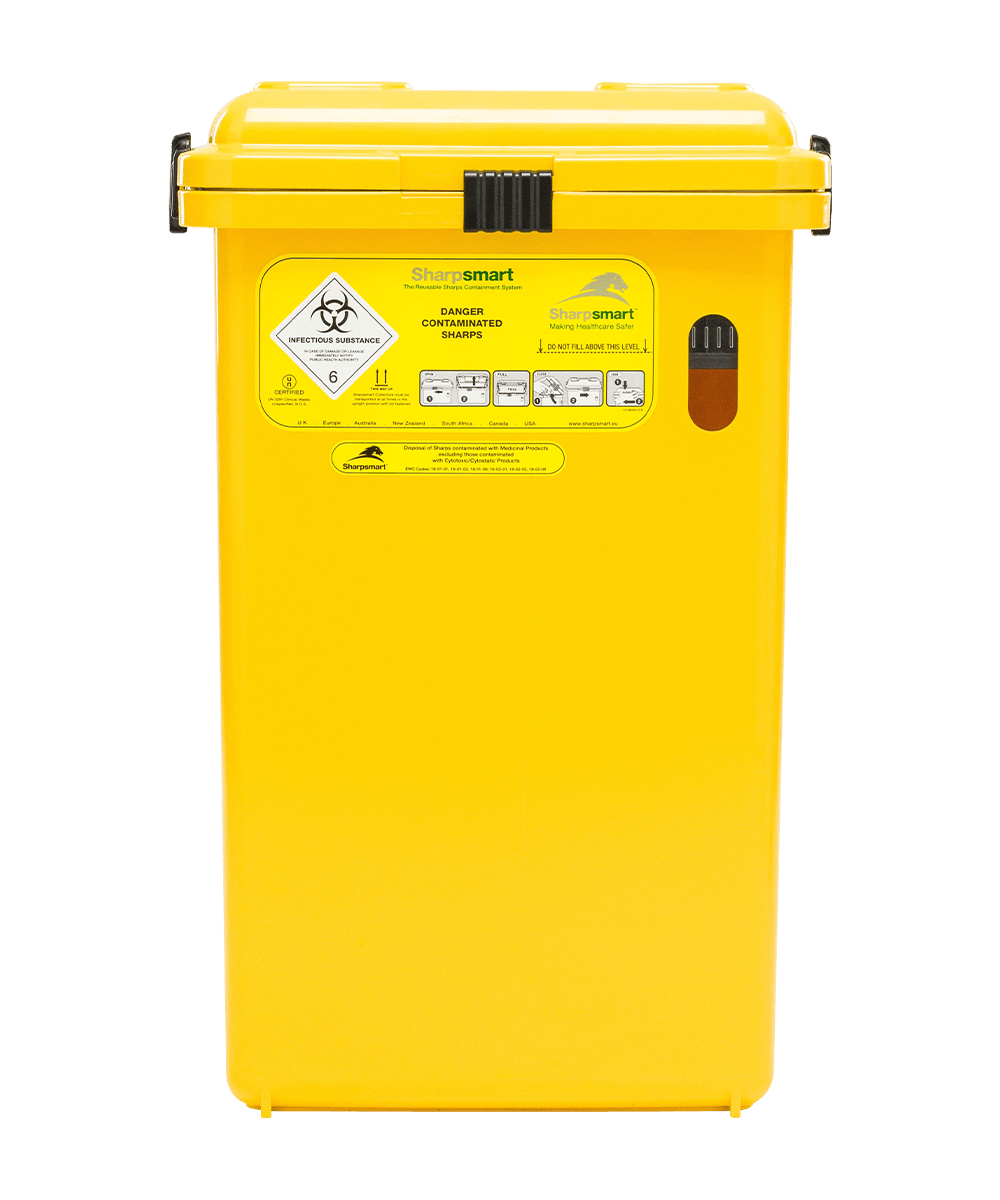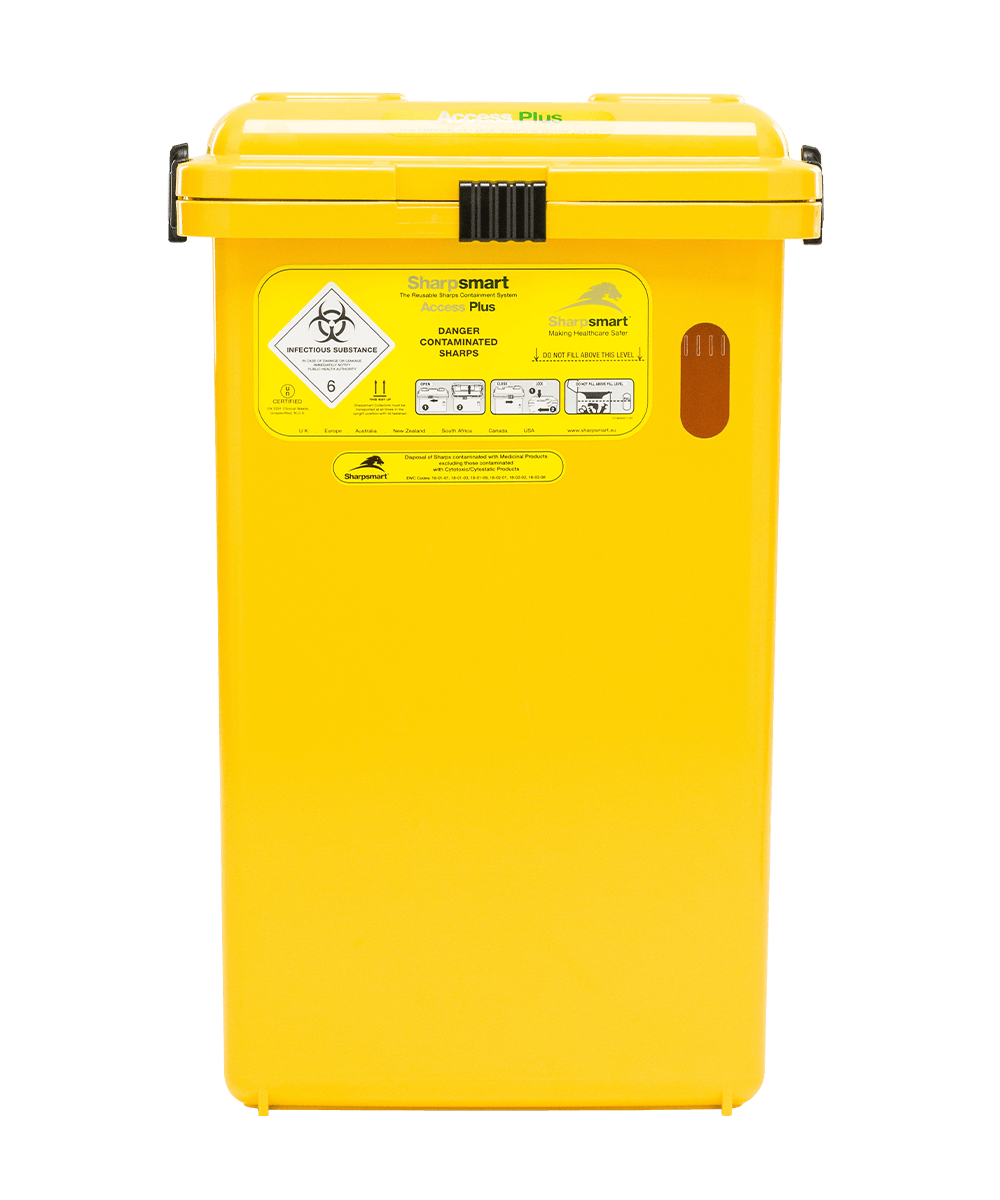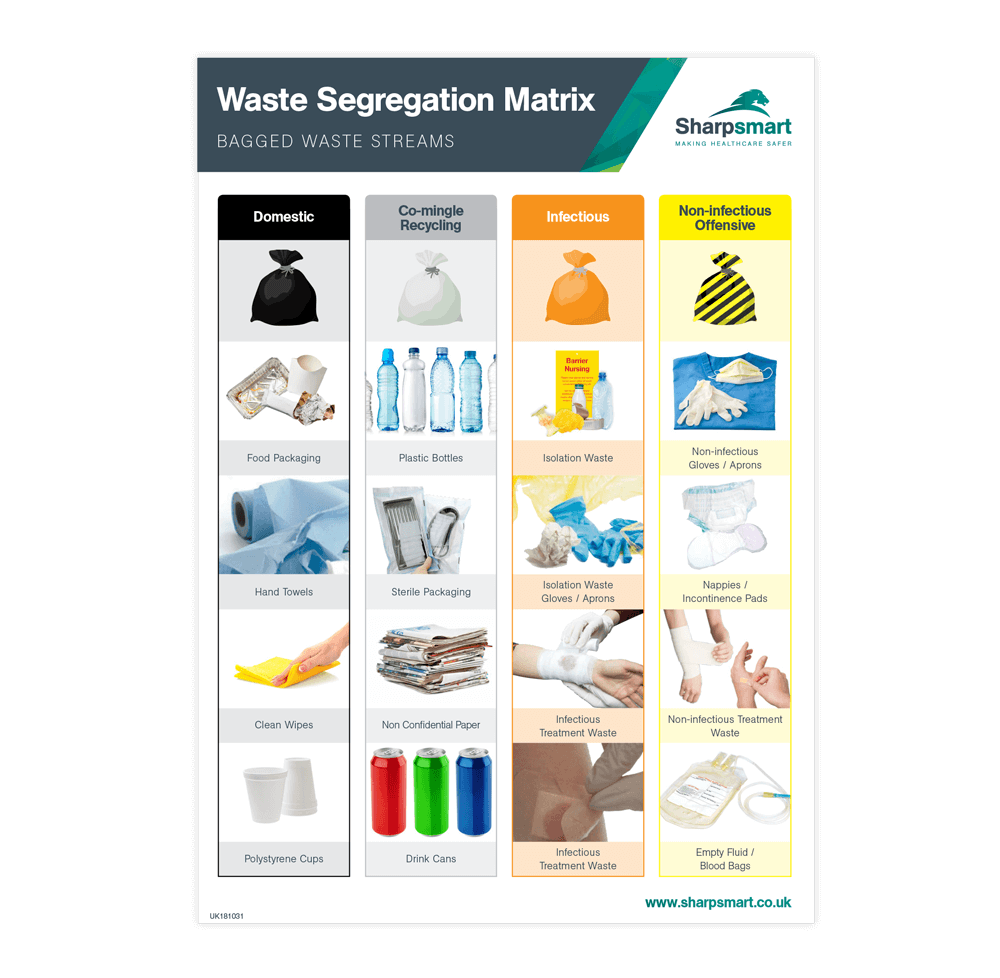Hazardous Waste Disposal that Prioritises Safety and Compliance
Sharpsmart’s hazardous waste solutions are designed for the safe, compliant, and sustainable management of hazardous waste disposal in the UK. Our services are tailored to meet the needs of healthcare facilities of all sizes.
Be Sustainable. Choose Reusable
99.6% reduction in the amount of plastic landfilled per annum; 84% reduction in carbon emissions. Upon converting from reusable sharps containers to the Sharpsmart reusable sharps system, one hospital achieved a 28% waste reduction across their 103 facilities, achieving a total waste reduction of 3.9 tons of plastic and cardboard waste per 100 beds per annum. Furthermore, a 51% reduction in container exchange labour was achieved by the install of larger Sharpsmart containers that were more suitable to volume requirements.
Regulatory Bodies
The governing bodies that oversee the safe and compliant handling, transport and disposal of healthcare-generated wastes include:
- Environment Agency
- Department of Transport
- Department of Health
- Health & Safety Executive (HSE)
- NHS Improvement
Healthcare Waste Containers designed for safety
Sharpsmart has reconsidered safety and security in the patient setting.
For sharps disposal, clinical offensive and infectious waste, cytotoxic and pharmaceuticals management, more is required to protect the safety of healthcare staff and patients. Sharpsmart has worked in UK healthcare for over 15 years, and has collaborated with clinicians to design the safest, most user-accessible and most secure sharps and clinical waste containment systems in the world. Puncture-proof, tamper-proof, leakproof, and hands-free to eliminate cross-contamination – we are changing safety at every step of the user journey. Unclean containers for infectious wastes is simply not an option.
The World’s Safest Reusable Cytotoxic Waste Container
Stop paying to burn every single-use container you fill
Sharpsmart’s mobile and hands-free cytotoxic waste containment system eliminates single-use container purchasing, assembly, bagging and boxing, the associated risks, and the costs of sending every full container to high-temperature incineration. With an inbuilt safety tray for safe sharps deposition and anti-tampering features, our cytotoxic series of containers has set a new benchmark of safety, sustainability and security in an oncology setting.
Secure pharmaceutical waste management
Protecting staff and facilities in the collection of expired drugs and controlled substances
Setting a new industry benchmark in secure pharmaceutical waste management, the Sharpsmart pharmaceutical containment system mitigates unnecessary risk for healthcare practitioners and the public in the containment, disposal, transport and destruction of partially used or expired medications. Through its safety-engineered design, our unique containment system eliminates tampering, pillaging and misappropriation of discarded pharmaceuticals.
Why Choose Sharpsmart for Hazardous Waste Disposal?
We’re only as good as what our UK-wide customers say about us. Read on to hear about their experience of working with Sharpsmart.
“Willing to go the extra mile..”
Sharpsmart’s service is excellent; their staff have a strong knowledge of clinical waste management and are always willing to go the extra mile to assist in any operational issues on site
Louise Wood, Estates Officer
Cumberland Infirmary

“Reduces our footprint…”
The reason why we chose to use the Sharpsmart sharps container was due to the sustainability issues of being able to recycle the actual sharps bin rather than incinerating them and causing more issues with carbon footprint.
June Ayre, Infection Control Matron
George Eliot Hospital

“Smooth Transition, reduced sharps injuries…”
Most people within the NHS will look back and wonder how we managed without Sharpsmart. The planning that went into ensuring that transition was smooth was well worth the effort, resulting in fewer staff needlestick exposures and sharps injuries.
Specialist in Infection Control
James Paget Hospital

“Such Nice People…”
Happy to recommend Sharpsmart. Good service, good products, genuinely nice people to do business with. Happy customer! We’re very glad we found Sharpsmart.
Lyn Harding, Practice Manager
One One Nine Dental

“Helps staff overcome any issues…”
“Guy has been amazing from the start, always willing to offer advice or put me in contact with other Sharpsmart employees or customers who I can turn to for advice if needed. He’s always willing to travel to the Trust in person and helps staff overcome any issues or concerns.”
Michael Brownjohn, Waste Manager
Surrey and Sussex Healthcare NHS Trust

FAQ’s
Let’s Talk!
Your time is valuable, and we don’t want to play hard to get. You can either phone us directly on the details listed on our contact page, or feel free to fill out this short form and one of our team members will get back to you as quickly as possible.
